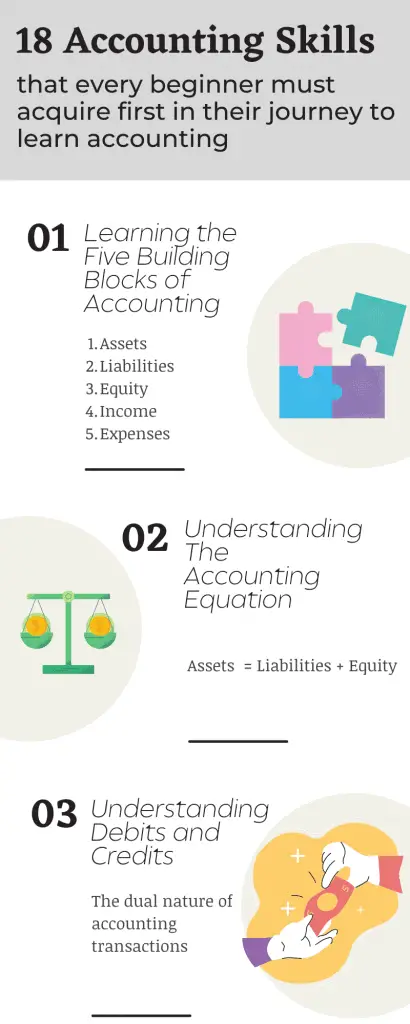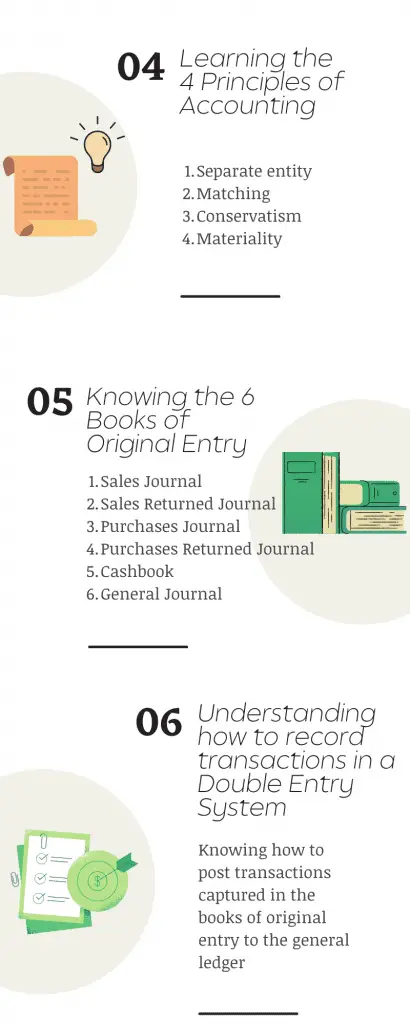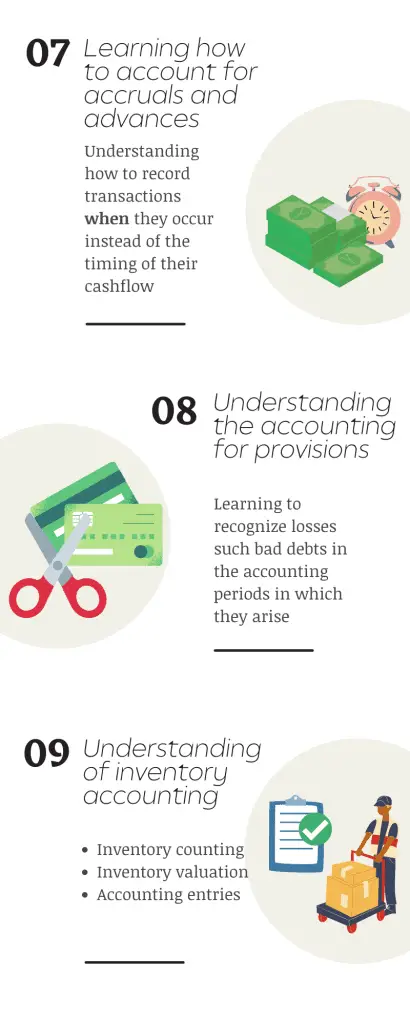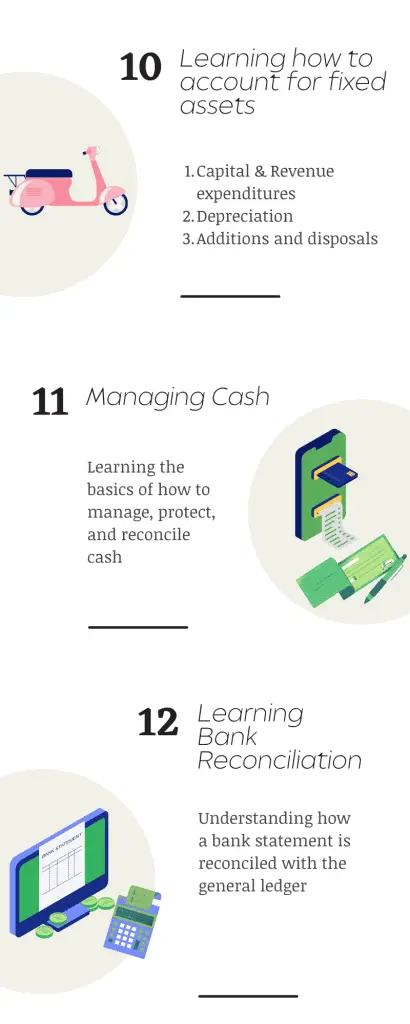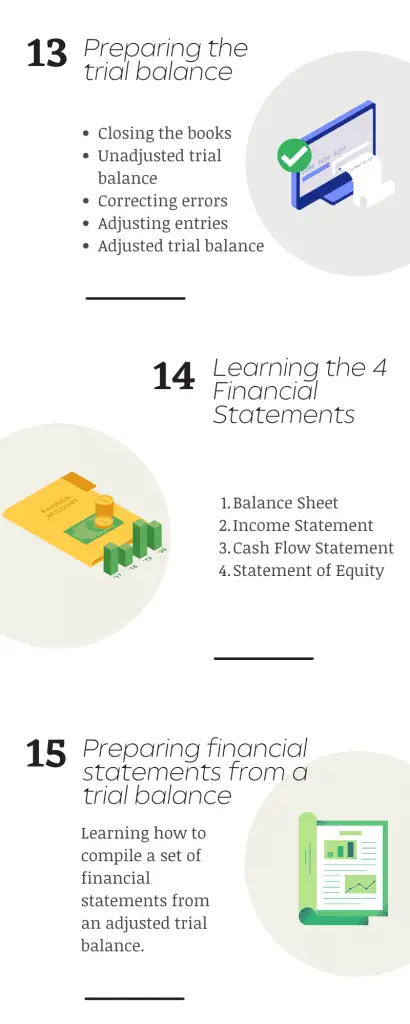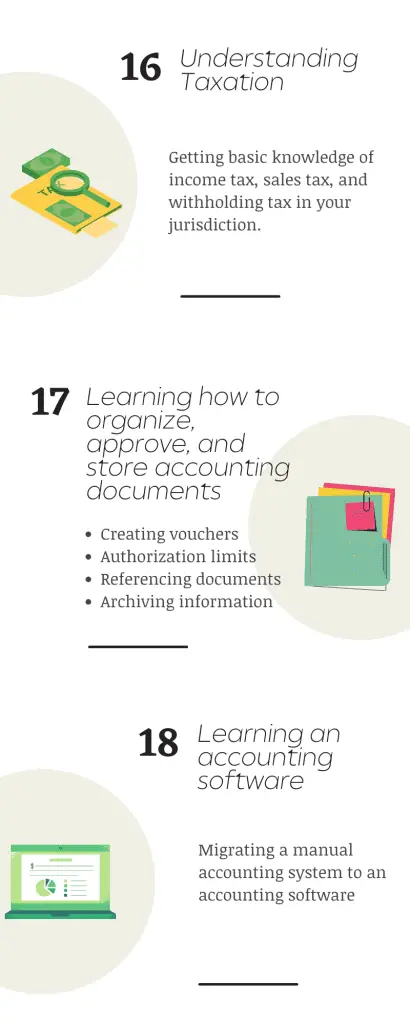
If you are new to accounting, it can be confusing to figure out why we need to study accounting and what skills we need to learn first to get good at it quickly.
If that describes you, then don’t worry, as I’m about to explain what accounting is all about based on my experience as an accountant.
In this guide you will learn:
- What is accounting?
- Why is accounting important to organizations?
- Top 18 Accounting Skills that beginners must learn according to a survey.
- Resources to help you learn accounting basics
What is Accounting?
Nothing sums up what accounting is all about better than the following quote from one of the most prolific investors.
Accounting is basically a way of communicating financial information of organizations such as:
- Where they spend their money?
- How much cash and other resources do they currently have?
- How much profit did they make in the last year?
- How much money do they owe to their lenders?
- How much cash has been invested in the business by its owners?
You may be wondering why we need to learn accountancy if we can simply keep a business diary that records all receipts, payments, borrowings, and investments of the business?
The reason why accounting is necessary is that it provides a systematic and reliable process to capture and organize the financial information of organizations, without which it will be difficult to get even the most basic financial data accurately and efficiently.
Definition of Accounting
Accounting is a systematic way of recording, organizing, and communicating the financial information of organizations.
Formal Vs. Informal Accounting System
Organizations can benefit from a formal accounting system for the following reasons:
- While informal accounting can be a hit or a miss, formal accounting processes have built-in measures to ensure the accuracy of financial records.
- Informal accounting systems may not take into account transactions that don’t affect the cash flow (.e.g., depreciation) but are necessary to measure the organization’s financial performance or health.
- In any organization above a certain size, it can be extremely inefficient to record and retrieve information from an informal accounting system. Formal accounting processes streamline the flow of financial information.
- Information from informal accounting systems cannot be relied upon by external users such as shareholders and creditors because it is not based on a recognized framework.
- Modern accounting methods provide insights for managing a business that an informal accounting system cannot provide.
- Knowledge of informal accounting systems may not be easy to transfer to a new person because they are not based on generally accepted accounting practices.
How does Accounting Help Businesses?
Accounting helps organizations in:
- Keeping an accurate record of their financial transactions such as income and expenses that can be verified in the future.
- Measuring their financial performance and health over a period of time and comparing it with other similar organizations.
- Summarizing and communicating the financial data in a form that is useful to different users.
18 Skills to Learn Accounting based on a Survey
People who are new to accounting are often overwhelmed by the amount of information that is available online. As a result, it can be hard for beginners to identify the accounting topics they need to study first to get better at accounting in the least amount of time.
I recently surveyed 6 accounting experts to help me solve this very problem. Each respondent in the survey was a certified accountant with at least 10 years of experience working in accounting roles.
Here’s what I asked them in the survey:
‘If a person has only 10 days to learn accounting basics, which 10 accounting skills or concepts will you recommend them to learn and practice that will enable them to maintain a reasonably accurate financial record of a small business?’
I know 10 days may not be enough to learn accounting basics, but phrasing the question like this helped me to identify the most critical accounting skills that can help speed up the learning process for beginners.
Here is the list of the top 18 Accounting Skills that were voted in the survey, followed by a list of useful resources to get you started. To make it easier for you, I have listed these skills in the logical order in which they should be learned.
